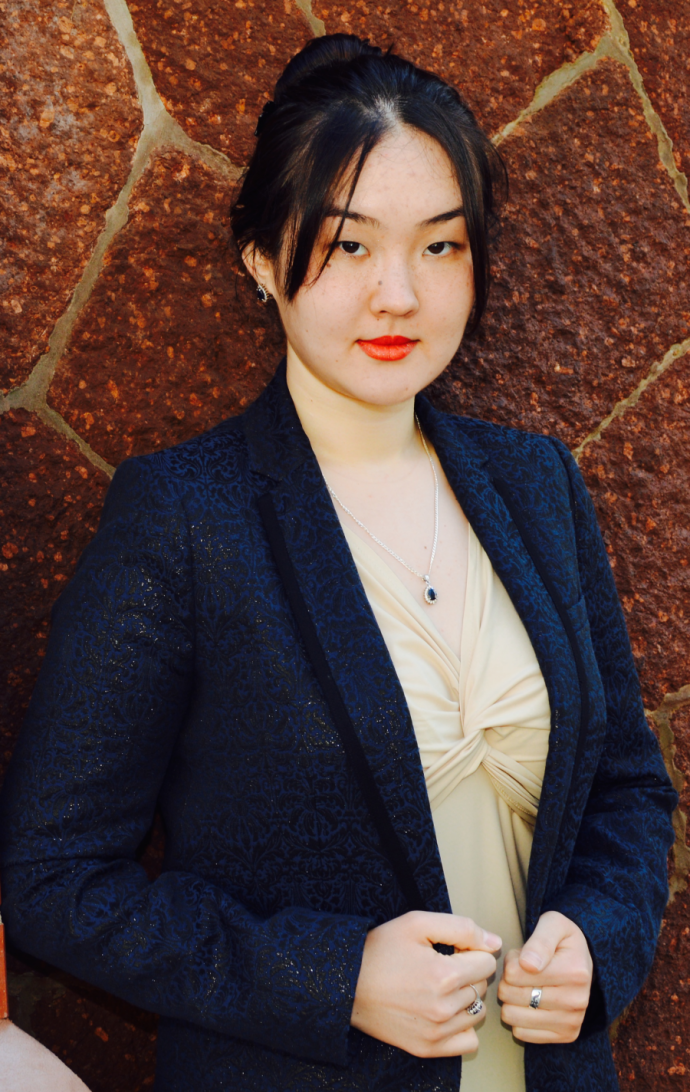Alumni Spotlight
Almakan Orozobekova: On the Way to PhD Degree
Almakan Orozobekova is a graduate of the MA in Politics and Security Programme 2014. Almakan was accepted for a position of a PhD Candidate as part of the Research Group "How Terrorists Learn" of the Max Planck Institute for Social Anthropology in Germany.
1. Almakan, at what stage of your life have you decided that you want to pursue a PhD degree?
When I was doing my second Master’s degree in the Geneva Centre for Security Policy and University of Geneva (GCSP/UNIGE), I was mainly concerned with two things – first, to complete and hand in my thesis and, second, to get clear about what I was going to do after my graduation. I was already thinking about different PhD programmes that I could apply while working on my thesis. It was quite difficult to write the thesis and at the same time think about the future but planning has always been important for me. I had a job option as well but my desire to go deep into analysis of the topic that I was doing research on was pushing me more to the PhD side.
2. What helped you to identify your research interest?
I have been doing research, if I put it in a broader sense, on terrorism. There were different factors that contributed to my decision to do research on this topic. However, I would say that it was mainly my professors’ advice and guidance that helped me to identify the research topic that I have been working on with a great interest further on. In fact, it was not easy to have a clear-cut idea about the research topic from the very beginning, and it took me quite long to make a final decision. My search for different research ideas and consulting with my professors helped me to get a clear idea that later became a part of my research interest.
3. How did you select the place where you wanted to do your research?
Some people choose places where they want to go and study, but in my case, it was a place, in this case, Germany that selected me to come and study. My colleague and groupmate, Nico Segers, with whom I studied at the GCSP and UNIGE, sent me an email in which he recommended to apply for a PhD position announced by the Research Group “How terrorists learn” of the Max Planck Institute for Social Anthropology. I got very interested in the title of the Research Group and further identified that it was not only the PhD program but also a researcher position at the Institute. I did like this perfect combination and the status that was offered, submitted my application and, honestly, then I forgot about it. In a few weeks, I received the invitation for an interview following which I was selected by the admissions committee.
4. Did the OSCE Academy contribute to your achievements?
Definitely. As well as the International University of Central Asia, the OSCE Academy has opened doors to different places and has greatly contributed to my achievements. As I have mentioned before, during my valedictorian speech at the graduation ceremony, the OSCE Academy has been providing its students with good training or ‘intellectual battles’ that its students have to go through in order to ‘survive,’ first, and, second, to get ‘proof’ of their survival– their diplomas. The OSCE Academy has strengthened my principle of hard work that resulted in the achievements since graduation.
5. Do you have any useful hints and tips for alumni and students who think whether to go for PhD or not?
Before going for a PhD, make sure that you have enough will and energy to write another and much longer thesis.
If you think that you want to go deep into a research topic that you have been very interested in, PhD study can be a good solution.
The PhD will provide an opportunity to work a lot, namely on the topic that you want to keep a focus on. However, you should know that your topic should not be very broad or in the framework of ‘to save the world’. Usually, in the course of writing dissertations, many students have to narrow down the scope of their topics and adapt to what their supervisors recommend. In short, you have to be very flexible and be ready to make a number of changes during the process of shaping your thesis.
Keep in mind that a PhD does not necessarily mean that you will stay in Academia forever. It is up to you to decide further what you can do with your PhD degree – get a job of a practical character or teach at a university. A PhD will only help you to strengthen your expertise.
If you are ready to read a lot, think a lot about your topic, and write a lot, then you might be ready for doing a PhD. A PhD is not only about study, but it is also mostly about a research work, an independent hard research work. It will not be easy and, after all, ‘no pain, no gain.



 Русская версия
Русская версия